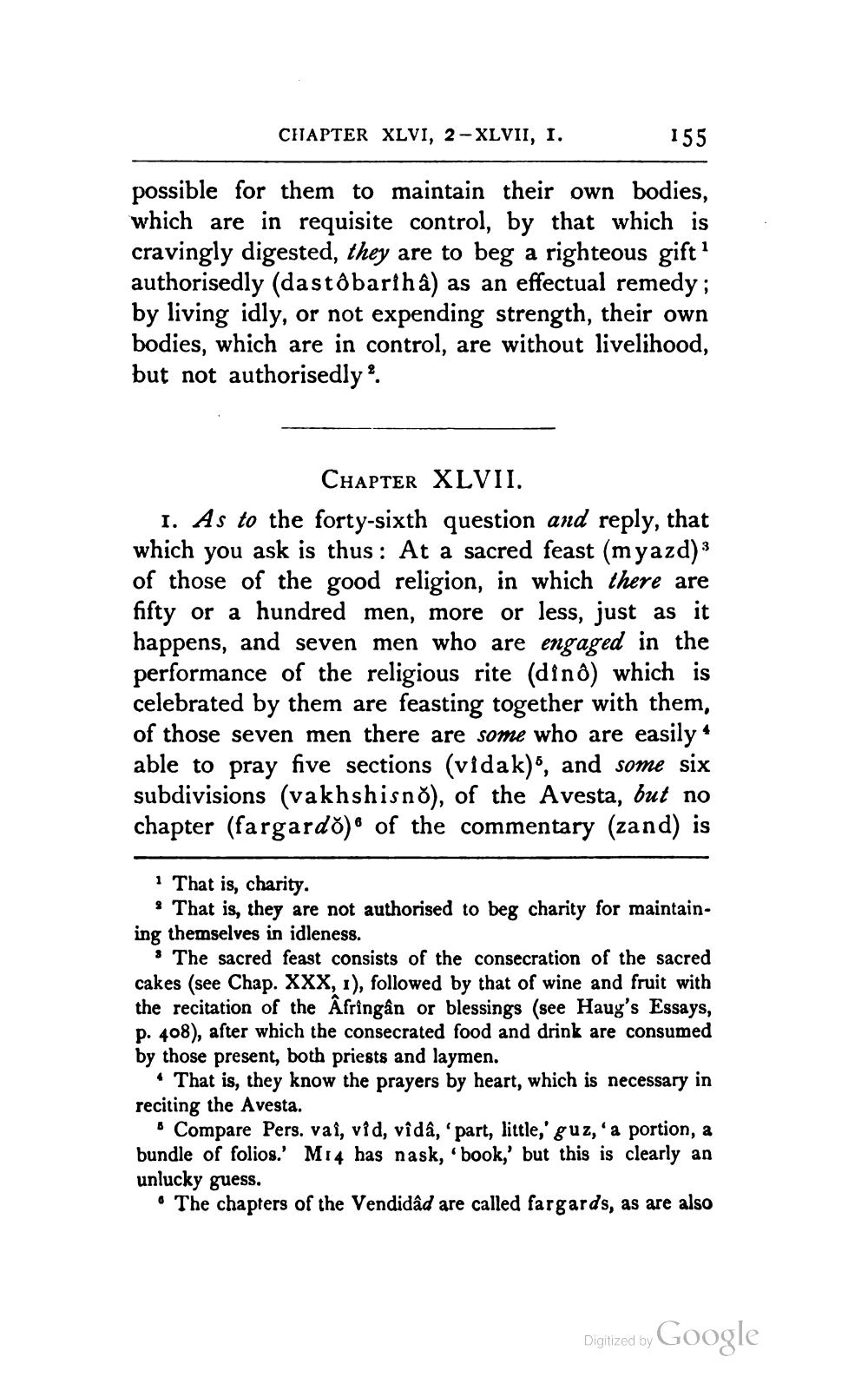________________
CHAPTER XLVI, 2-XLVII, I.
155
possible for them to maintain their own bodies, which are in requisite control, by that which is cravingly digested, they are to beg a righteous gift? authorisedly (dastóbarthâ) as an effectual remedy; by living idly, or not expending strength, their own bodies, which are in control, are without livelihood, but not authorisedly
Chapter XLVII. 1. As to the forty-sixth question and reply, that which you ask is thus : At a sacred feast (m yazd) 3 of those of the good religion, in which there are fifty or a hundred men, more or less, just as it happens, and seven men who are engaged in the performance of the religious rite (dinô) which is celebrated by them are feasting together with them, of those seven men there are some who are easily 4 able to pray five sections (vidak)•, and some six subdivisions (vakhshisno), of the Avesta, but no chapter (fargardo) of the commentary (zand) is
1 That is, charity.
* That is, they are not authorised to beg charity for maintaining themselves in idleness.
The sacred feast consists of the consecration of the sacred cakes (see Chap. XXX, 1), followed by that of wine and fruit with the recitation of the Afringân or blessings (see Haug's Essays, p. 408), after which the consecrated food and drink are consumed by those present, both priests and laymen.
• That is, they know the prayers by heart, which is necessary in reciting the Avesta.
• Compare Pers. vai, vid, vida, part, little,' guz, a portion, a bundle of folios.' M14 has nask, "book,' but this is clearly an unlucky guess.
. The chapters of the Vendidâd are called fargards, as are also
.
Digitized by Google




